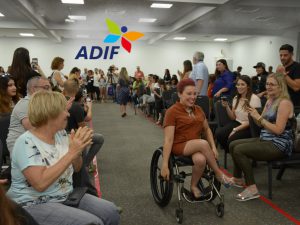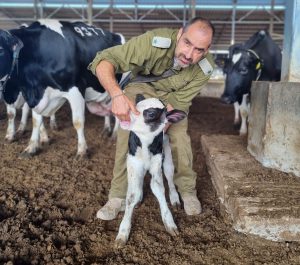Reduced Inequalities


Home » Reduced Inequalities » SDG 10-Emerging from Corona with Disabilities & Special Needs
SDG 10-Emerging from Corona with Disabilities & Special Needs
Following an approximately six-week shutdown, Israel is now accelerating measures restoring life to as close to the pre-coronavirus reality as possible. At the same time, the country has not forgotten its vulnerable, for whom the routine could take much more time to regain. In this context, particular focus has been placed recently on Israelis with disabilities and special needs. The issue is complex and multi-faceted, ranging from family contacts to children’s study frameworks.
The issue of family visits among people with disabilities has become a high-profile issue of late, when President Rivlin asked the outgoing Health Minister (and tweeted the request in Hebrew and English) to allow familial visits at mental and physical disability living centers. The President expressed concern that restrictions such as social distancing and isolation might lead to severe psychological implications among some people living in such facilities.
Recognizing the challenge beforehand, the Social Affairs Ministry decided to allow people living in facilities under the supervision of its Disability Administration to leave the premises for nuclear family visits. The visits are of course subject to Health Ministry guidelines, including with regard to the wearing of protective face masks; in cases in which the resident cannot wear a mask, family hosts must make sure to wear masks themselves. Furthermore, residents are closely monitored for coronavirus symptoms following their return.
Read more about “Volunteers for the Vulnerable to Corona”.


Many government facilities catering to people with disabilities and special needs are assisted by participants in the Social Affairs Ministry’s International Volunteers Program. Hundreds of foreign volunteers who were in Israel for the program decided to remain, despite the opportunity to return home. Not surprisingly, perhaps the most important task carried out by the volunteers has been ensuring contact with family.
Relevant activities go well beyond these. In coordination with civil society organizations, the Social Affairs Ministry has been involved in the regular distribution of food packages to about 9,000 people with disabilities who live within the community – 6,000 living independently, and another 3,000 with mental disabilities (who are ordinarily assisted by the Health Ministry, which enlisted the help of its counterpart ministry).
In addition, tablets have been distributed by the Ministry to more than 1,000 children and adults with disabilities; recipients come from lower socio-economic backgrounds who live at home and do not have a computer. The goal is to enable them to maintain contact with their educational frameworks and family/friends, to work from home, as well as operate smart home systems that help them with independent living.
Resumption of classes has presented a further challenge. Children with special needs were the first students to gradually return to school in some form, a process that began the third week of April (other students began returning this week): among Israeli Jews, altogether there are approximately 200,000 such students who are integrated into general schools and another 50,000 in special needs schools and kindergartens (in addition to 12,000 in the Arab community).
In consideration of Health Ministry stipulations, an initial format was created limiting three-hour sessions – up to three times a week – to no more than three children at a time, sitting at distanced tables (separation is also maintained during recess); each class manned by two professionals assigned on a permanent basis to the specific children, with tailor-made curricula prepared in cooperation with their parents. Students and teachers must, of course, also wear protective face masks.
During the same period in late April special day care frameworks for children with disabilities were also resumed, on the basis of small groups of three per care worker.
Alleviating the obstacles faced by people with disabilities and special needs is a challenge in the best of times; the crisis generated by the coronavirus made that much more complicated. From the beginning of the crisis right up to the current return to normalcy, however, Israel has made sure not to turn a blind eye to their needs.
Related articles


SDG 10- ADIF for Everyone
Reduced Inequalities In a wave of social entrepreneurship ADIF )preferable/better in Hebrew) has taken Israel by storm with its unique social club business structure. With


SDG 10 – Civil Society Steps Up
Reduced Inequalities It’s no secret that Israel’s civil society organizations are among the most robust in the world. Now operating in the shadow of war,


SDG 10 – Israel Celebrates Social Equality Heroes at 75
Reduced Inequalities Once again that season is upon us, when Israel annually marks an additional year of independence by celebrating those citizens dedicated to advancing


















